Cracks are becoming chasms as a number of the accepted truths politicians lean on, like sport being an apolitical unifier and country Australia not caring about climate change, are shredded.
Athletes say Australia’s climate action doesn’t even qualify
This week, 370 elite Australian athletes from over 35 sports joined a campaign led by former Wallabies captain, David Pocock, calling on Australian leaders to take serious and science-based steps to address the climate crisis. The initiative, named The Cool Down, included an open letter in which the sportspeople said the climate crisis and resulting increase in extreme weather was “threatening the sports and country we love.”
https://www.instagram.com/p/CTJHbCbB17c/?utm_source=ig_web_copy_link
Signatories includes a range of household names like Pat Cummins, Lance Franklin, Liz Ellis, Cate and Bronte Campbell, Mick Fanning, Craig Foster, Nat Fyfe, Daisy Pearce, Ian Chappell, Mark Webber, and hundreds more.
Australia’s biggest climate survey debunks myths
The initiative was launched on the same day the results of Australia’s most expansive climate survey were released, commissioned by the Australian Conservation Fund (ACF). Contrary to federal government’s rhetoric that climate action is championed only by latte-sipping inner-city ‘wokes’, the poll found one in four rural voters say climate change is the single most important issue for them in the next election, with half of Coalition voters wanting greater climate action.
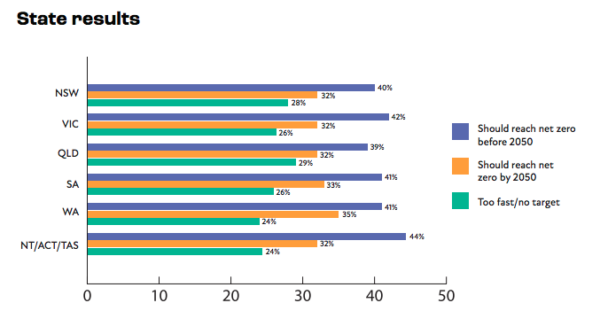
Australian Conservation Fund (ACF)
In fact, the survey found the majority of voters in traditional ‘coal seats’ across New South Wales and Queensland do not support new coal and gas plants, revealing a shift even among the communities who stand to gain in the short-term from the government’s continued fossil fuel support.
“This polling shatters the myth there’s one view in the bush about climate change and another in the city,” ACF Chief Executive, Kelly O’Shanassy, said.
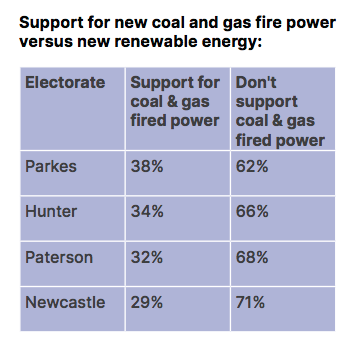
Australian Conservation Fund (ACF)
The majority of voters in every one of the nation’s 151 federal electorates believes the Morrison government should be doing more to tackle climate change, the survey discovered.
Spinning against a wall
The federal government yesterday released the national greenhouse gas emission data in the period to March 2021, spinning the 5% decrease since March 2019 as a success. Few seem to have bought the slant, with analysts saying the decrease reveals little other than the pandemic’s effect of grinding transport and mining to a halt.
In terms of trends, emissions actually increased by 0.3% from the December to the March quarter, coinciding with Covid-19 rebounds. Angus Taylor, the federal government’s Minister for Energy and Emissions Reduction, nonetheless touted the results as “meeting and beating” our Paris targets, which committed the country to a modest 26-28% cut in emissions from 2005 levels – a target now understood to be painfully insufficient and globally irrelevant.
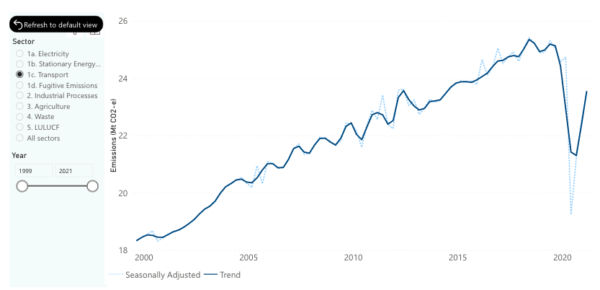
Australian government
Even in meeting the unambitious goal, senior researcher with the Climate Council, Tim Baxer, says the federal government are not to thank. Rather, he told The Guardian, the emissions cuts since 2005 were overwhelmingly the result of states reducing land-clearing and deforestation, which is made evident by toggling through the different sector emissions data on the government’s interactive graph. With land use and forestry excluded, emissions fell just 2.9% between 2005 and 2021.
Glasgow summit looms
With just 61 days before the Glasgow climate summit (Cop26), the government is expected to release its long-term climate plan before the meeting. The climate plan was rather conveniently delayed last year due to the pandemic, but will be expected among the global community which has already singled out Australia as a climate laggard.
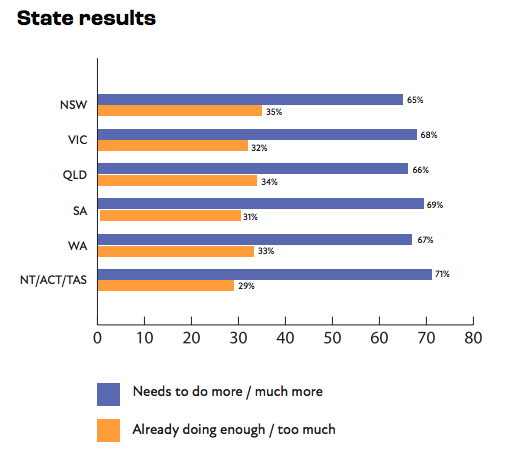
Australian Conservation Fund (ACF)
Hopes for a late pivot seem somewhat unlikely though with Australian Industry Group, the country’s largest employer group, revealing in August that it hasn’t been consulted on any plans to date. Nonetheless, the federal government has come under increasing pressure to join the hundreds of countries which have set net zero targets for 2050 or earlier.
Perhaps now, having lost its imagined base and its sports stars, the Morrison government is indeed rethinking its strategy.
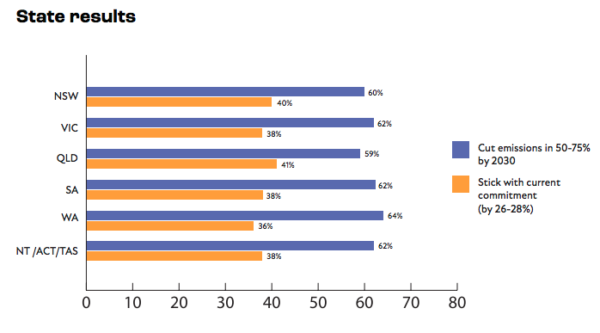
Australian Conservation Fund (ACF)
This content is protected by copyright and may not be reused. If you want to cooperate with us and would like to reuse some of our content, please contact: editors@pv-magazine.com.









By submitting this form you agree to pv magazine using your data for the purposes of publishing your comment.
Your personal data will only be disclosed or otherwise transmitted to third parties for the purposes of spam filtering or if this is necessary for technical maintenance of the website. Any other transfer to third parties will not take place unless this is justified on the basis of applicable data protection regulations or if pv magazine is legally obliged to do so.
You may revoke this consent at any time with effect for the future, in which case your personal data will be deleted immediately. Otherwise, your data will be deleted if pv magazine has processed your request or the purpose of data storage is fulfilled.
Further information on data privacy can be found in our Data Protection Policy.